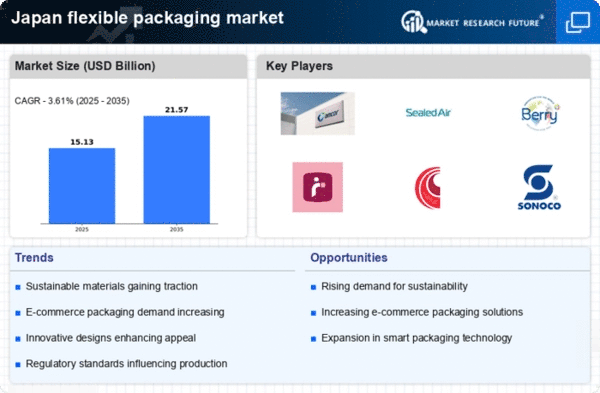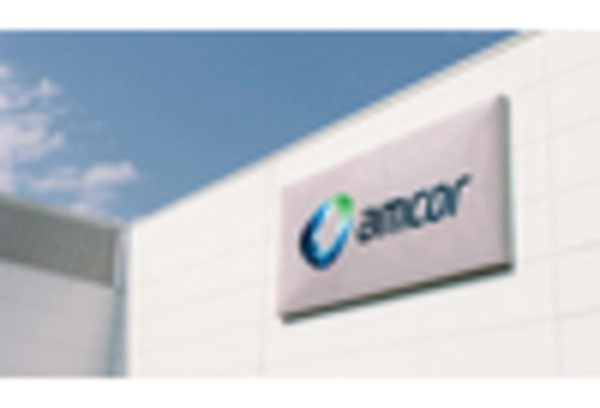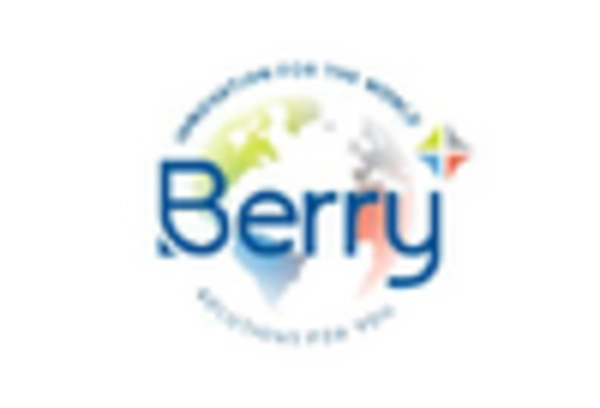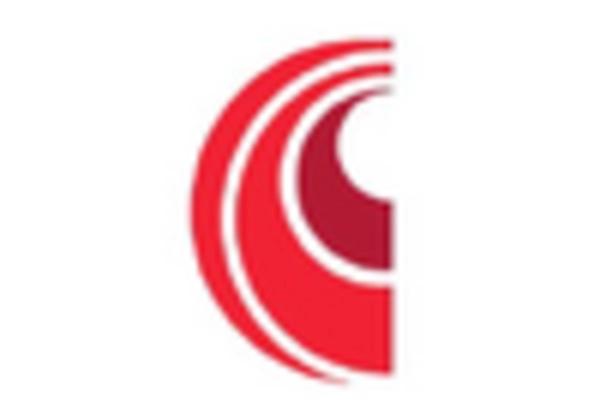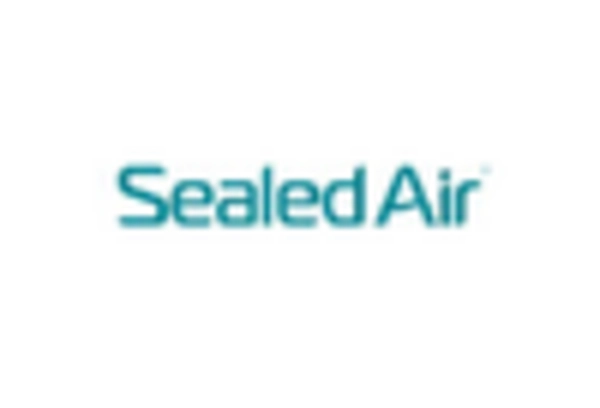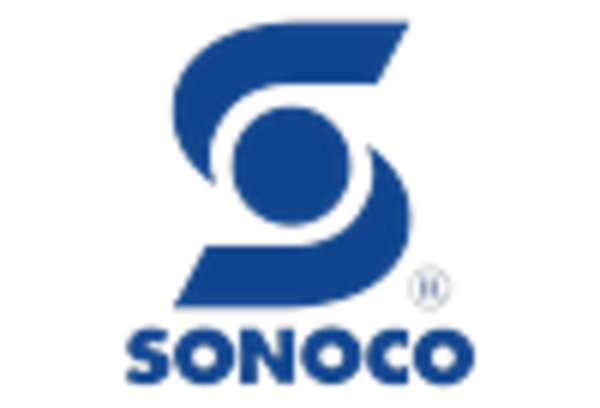Growth of the Snack Food Sector
The flexible packaging market in Japan is significantly impacted by the expansion of the snack food sector. With a growing consumer base seeking convenient and portable snack options, manufacturers are increasingly turning to flexible packaging solutions. The snack food industry is projected to reach a market value of approximately $10 billion by 2027, indicating a robust growth trajectory. This trend is likely to drive demand for flexible packaging formats that cater to single-serve and resealable options, enhancing consumer convenience. The flexible packaging market must respond to this demand by offering innovative designs that not only appeal to consumers but also maintain product integrity. As the snack food sector continues to thrive, the flexible packaging market is poised for substantial growth.
Expansion of Online Retail Channels
The flexible packaging market in Japan is experiencing a transformation due to the expansion of online retail channels. As e-commerce continues to grow, there is a heightened demand for packaging solutions that ensure product safety during transit. Flexible packaging offers advantages such as lightweight and space-efficient designs, which are particularly appealing for online retailers. Recent statistics indicate that e-commerce sales in Japan are expected to surpass ¥20 trillion by 2026, further driving the need for effective packaging solutions. The flexible packaging market must adapt to these changes by providing packaging that not only protects products but also enhances the unboxing experience for consumers. This shift presents opportunities for innovation and growth within the market.
Innovations in Barrier Technologies
Advancements in barrier technologies significantly influence the flexible packaging market in Japan. Enhanced barrier properties are crucial for preserving product freshness and extending shelf life, particularly in the food and pharmaceutical sectors. Innovations such as multi-layer films and coatings are being developed to provide superior protection against moisture, oxygen, and light. This is particularly relevant as the food industry seeks to reduce waste and improve sustainability. The flexible packaging market is likely to see a shift towards materials that not only offer these enhanced properties but also align with environmental standards. As a result, companies investing in research and development of these technologies may gain a competitive edge, potentially capturing a larger market share.
Rising Demand for Convenience Packaging
The flexible packaging market in Japan experiences a notable surge in demand for convenience-oriented solutions. As consumer lifestyles evolve, there is an increasing preference for products that offer ease of use and portability. This trend is particularly evident in sectors such as food and beverages, where ready-to-eat meals and single-serve packages gain traction. According to recent data, the convenience food segment is projected to grow at a CAGR of approximately 5.2% through 2026, driving the flexible packaging market forward. Additionally, the rise of on-the-go consumption patterns necessitates packaging that is lightweight and easy to handle, further propelling the market's growth. The flexible packaging market must adapt to these changing consumer preferences to remain competitive and relevant.
Regulatory Support for Sustainable Practices
The flexible packaging market in Japan is positively influenced by regulatory support aimed at promoting sustainable practices. The government has implemented various initiatives to encourage the use of eco-friendly materials and reduce plastic waste. This regulatory environment fosters innovation within the flexible packaging market, as companies are motivated to develop sustainable packaging solutions that comply with new regulations. For instance, the introduction of incentives for using biodegradable materials may lead to a shift in material sourcing and production processes. As sustainability becomes a focal point for both consumers and regulators, the flexible packaging market is likely to see increased investment in research and development of environmentally friendly alternatives.


